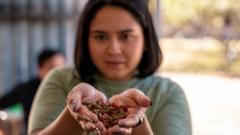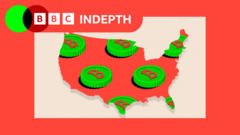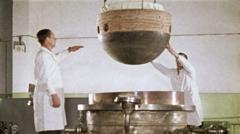In a country famously fond of deep-fried delicacies, the sight of used cooking oil often raises eyebrows but for Hugo Daniel Chávez, it presents a unique business prospect. Working with the NGO Sustenta Honduras, Chávez is at the forefront of a movement that converts this culinary waste into valuable products like soap and dog food. "We aim to transform waste and give it a second life," he tells BBC.
Honduras sees millions of tonnes of cooking oil consumed annually, primarily from frying beloved foods such as chicken and plantain strips. However, prolonged reuse and illegal sales in a black market can lead to health hazards and environmental concerns. Improper disposal practices can damage infrastructure and pollute essential water sources.
Addressing these challenges, Sustenta takes a proactive approach by incentivizing businesses to dispose of their used cooking oil responsibly. They offer financial compensation and regular pickups to participating restaurants and food establishments. The idea aligns with past attempts to convert cooking oil into biodiesel, but with a localized twist, focusing on products with a domestic market appeal.
Their eco-conscious efforts caught international attention, notably winning a $20,000 award at the 2023 Youth4Climate Energy Challenge, backed by the United Nations. Additional funding from the Netherlands Embassy further solidified their mission. Sustainable practices not only aim to lessen environmental damage but also empower young women and create green jobs, crucial for communities most affected by climate change.
Sustenta provides between 2.50 and 3.50 Lempiras (approximately £0.08-£0.11) per pound of used oil and has secured significant contracts, including a recent agreement with Walmart to ensure a steady supply of used cooking oil. This partnership is vital to scaling their production and maintaining sustainability against competing black market sellers.
At their processing facility in Comayagua, the used oils undergo purification, followed by a chemical reaction known as saponification, which transforms fats into soap. Moreover, Sustenta boasts a "circular ecological system," using waste from a neighboring water purification plant to enhance their operations.
Sustenta's innovative strategy not only aims to sell refined soap and dog food but also educates clients like Walmart on the potential profits of circular economies. The annual revenue from soap sales has reached over 106,000 Lempiras (£3,195), showcasing the financial viability of this green initiative.
A youthful team, all under 30, leads Sustenta with fresh perspectives on addressing climate issues, favoring practical solutions over traditional confrontational environmentalism. Their goals align with broader environmental movements while emphasizing partnership and innovation.
Ultimately, Sustenta's recycling program epitomizes the transformative potential of collaboration and creativity in tackling waste management challenges, inspiring other regions in Latin America and beyond.






















